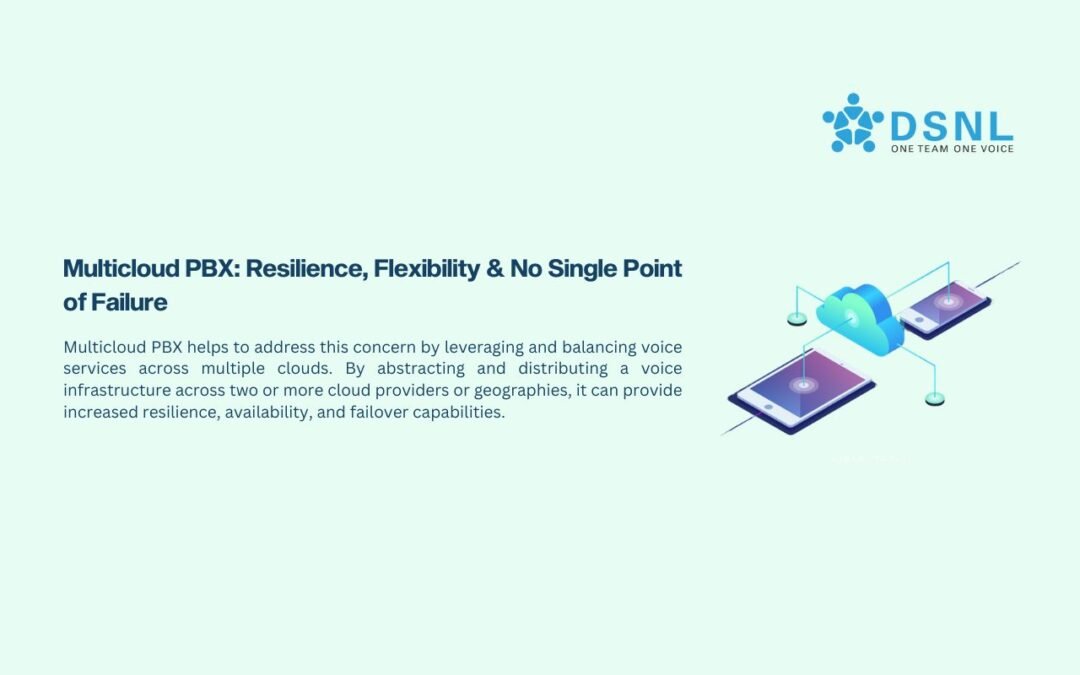Multicloud PBX helps to address this concern by leveraging and balancing voice services across multiple clouds. By abstracting and distributing a voice infrastructure across two or more cloud providers or geographies, it can provide increased resilience, availability, and failover capabilities. In this article, we discuss multicloud PBX and the value it can provide in eliminating single points of failure in the enterprise voice network.
Features of Multicloud PBX
Multicloud PBX is an approach to cloud telephony that deploys a PBX infrastructure across multiple independent cloud providers. This architecture duplicates or spreads an entire set of PBX features and services across redundant cloud environments, including call routing rules, voicemail services, IVRs, conferencing, and analytics dashboards. A multicloud PBX differs from a traditional hybrid deployment in that there is no on-premise component. The underlying service model is purely cloud, but distributed across parallel, and possibly competing, cloud ecosystems.
Mission-Critical Voice: Removing Single Points of Failure
In today’s modern workplace, cloud PBXs and UCaaS deployments have become mission-critical applications for businesses and, as such, must be fully available with zero single points of failure. A PBX running entirely in a single provider’s network, or even a single data center, has a breaking point. The larger and more globally distributed the business, the greater this risk.
Cloud phone systems represent the communication lifeline for an entire enterprise, in all forms of customer interaction as well as employee-to-employee activity. When a service goes down, not only is there an immediate impact on productivity, but it also erodes trust in the technology and platform.
Multicloud PBX for Scalable Growth
A major advantage of multicloud PBX is scalability and flexibility in growth. As organizations expand to new regions and markets, they can spin up new cloud PBX deployments using the regionally optimized providers, automatically giving them low latency and regulatory coverage. New call flows, new users, and new departments can be supported without overloading a centralized voice platform.
Scale also works horizontally at the technical level, where multicloud PBXs enable prioritization of workloads and fine-tuned call routing to specific regions or data centers, based on real-time requirements or traffic profiles.
Business Continuity and Compliance with Multicloud PBX
Business continuity is a critical concern for many regulated industries with more stringent uptime and security requirements. Multicloud PBX provides a ready-made redundancy model to support disaster recovery efforts. Failover is built into the system and takes virtually zero time, since services already exist in an active state in a secondary cloud.
Compliance is another area where multicloud PBX makes an impact. With voice applications and associated services like call recording spanning multiple data zones or using certified clouds, it is easier to demonstrate and meet certain industry standards around data residency and security.
Conclusion
Multicloud PBX systems are designed to provide increased availability and flexibility for mission-critical voice applications. By eliminating single points of failure and spreading a voice network over multiple providers and geographies, as well as supporting independent and optimized workloads, it provides an infrastructure with no single breaking point. Call our experts today to know more about it.

